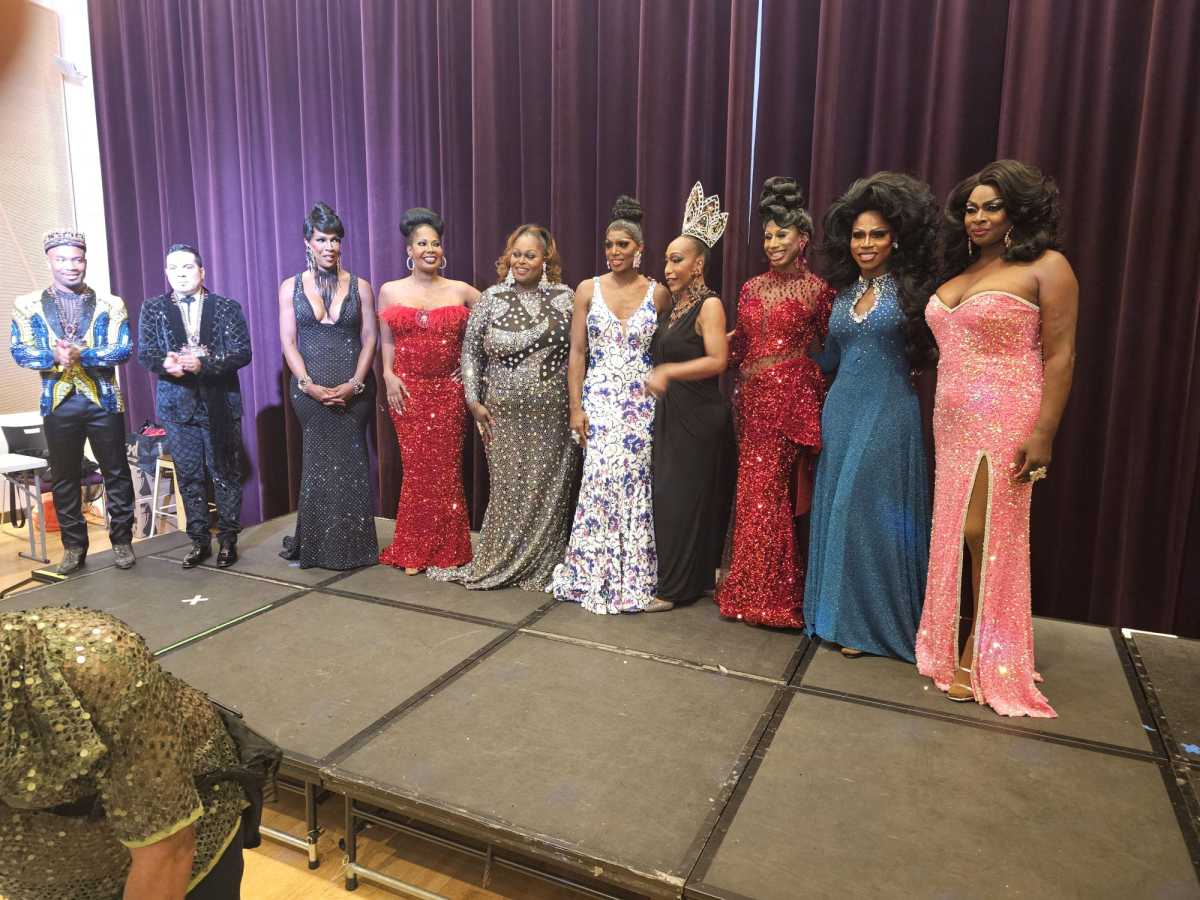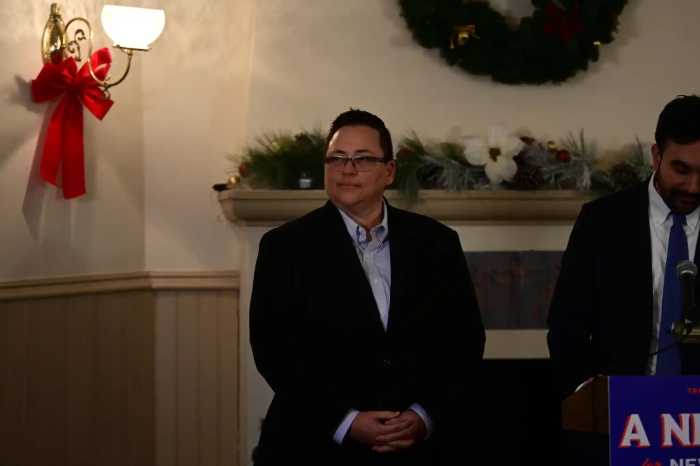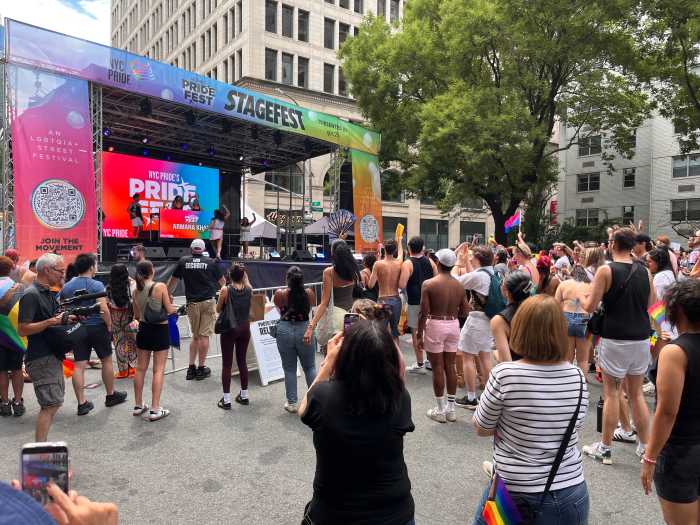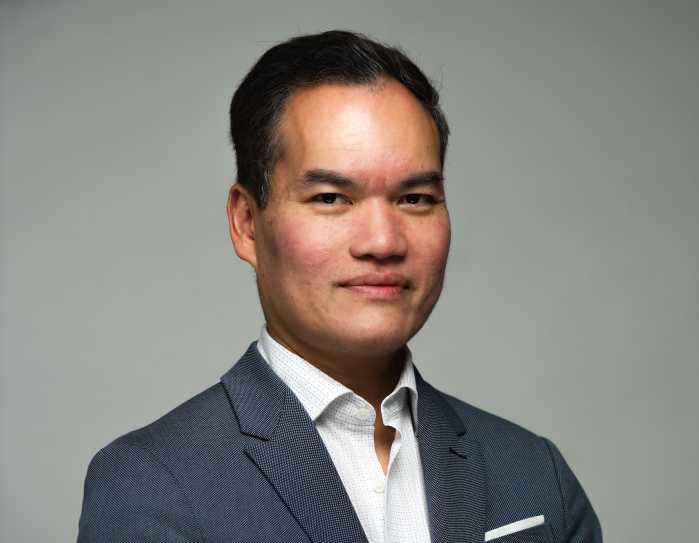Serving as mistress of ceremonies was acclaimed drag performer Harmonica Sunbeam.
Contestants originated from cities across the country, including Detroit and New Orleans, vying for the crowns in a field of categories that showcased talent, swimwear, formal wear, and interview skills.
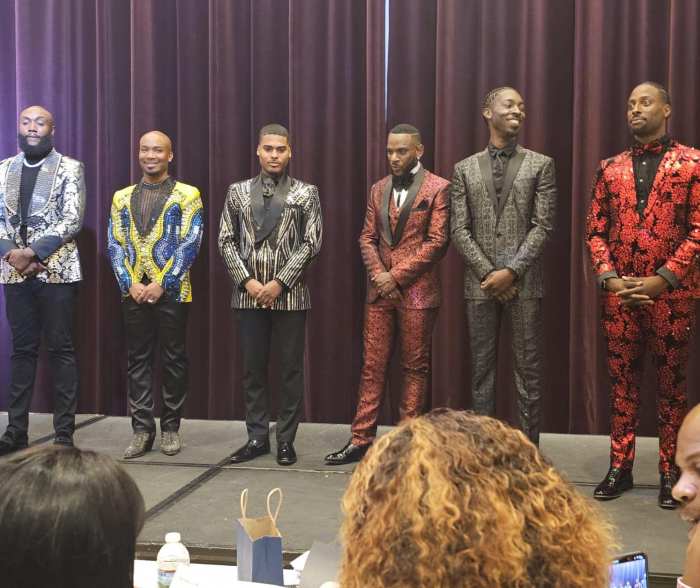
The pageant was one of the events in a packed schedule of attractions for NYC Black Pride, now in its 27th year.
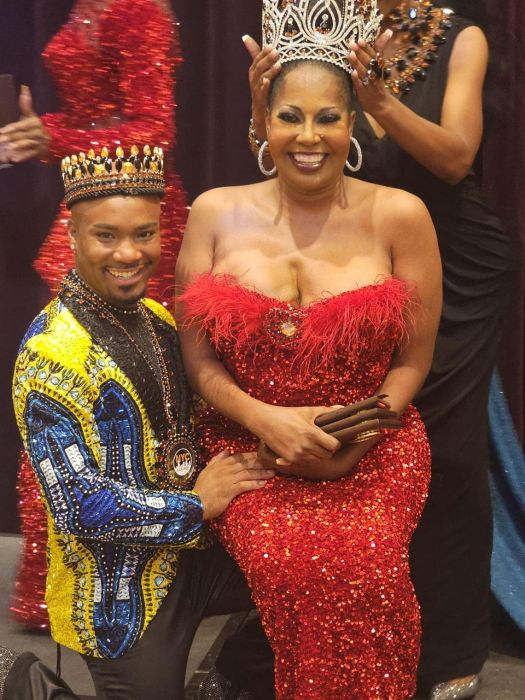
“All the events for Black Pride, I make sure, are free,” said NYC Black Pride founder Lee Soulja-Simmons, on stage at the pageant. “Please, support the ballroom community and support our artists, our authors.”
The ballroom community of amateur and professional performers, many of whom are drag aficionados like all of the contestants who competed for the Miss Black Pride International title, has evolved into a worldwide movement since its origins in New York City in the 1960s. It has contributed cultural innovations such as vogueing, the acrobatic, gender-fluid dance style, to the world.
While the pageant was not a ballroom event, the ballroom vibe was strong in the hall at The Center: Revered elders were seated up front to one side of the stage, where they received greetings of bows and kisses; audience members rewarded “fierce” performers on stage by handing them dollar bills.
Brett Sturgis, who won the first Mr. Black Pride pageant under the stage name of Brandon Thomas, described the competition as, “A place to express, to perform, and really just show that melanin inside.”
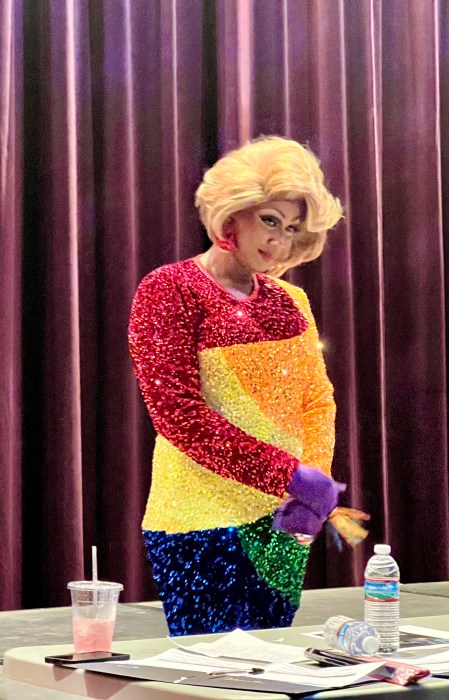
Beauty pageant-style competitions have been a feature of Black Pride celebrations for decades. Mr. and Miss Black Gay Pride pageants were part of the lineup at Dallas Black Gay and Lesbian Pride weekend in 1997, where among the headliners was now-legendary performer Kevin Aviance.
Black LGBTQ+ Pride events emerged because Black communities such as the ballroom society experienced exclusion from, or marginalization within, official Pride celebrations. Presently, the Center for Black Equity, a Washington, D.C.-based not-for-profit organization, documents 48 officially-organized Black Pride events around the United States, and one each in London, England, and Paris, France. Additionally, the Center for Black Equity notes, Pride events are publicly observed in majority-Black international locations, from Lagos, Nigeria, to Paramaribo, Suriname, including two in Jamaica, a country whose track record on LGBTQ+ protections has drawn considerable concern. Several of these celebrations have featured pageants.
“Black comes in many, many forms,” Sturgis said. “Whether you are African American, whether you are Native American, whether you are Latino, whether you are South Asian, Indian, Black comes in a lot of different shapes and forms. So, we encourage all performers of all walks of these origins to come join us for this celebration, as we do once a year in New York City. Be a part of the fourth one.”
Nicholas Boston, Ph.D., is a professor of media sociology at the City University of New York-Lehman College.

